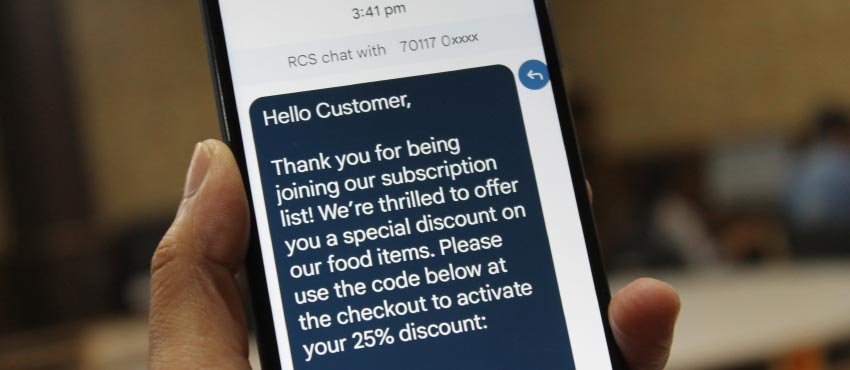Restrictions on the type of messages that can be sent through a Bulk SMS Sender
Bulk SMS senders are subject to various restrictions and regulations to ensure responsible and lawful use of their services. The specific restrictions may vary depending on the country or region, as each jurisdiction may have its own laws governing SMS communications. Here are some common restrictions that are often applied to Bulk SMS messages:
-
Compliance with Anti-Spam Regulations:
Bulk SMS senders must comply with anti-spam laws, such as the CAN-SPAM Act in the United States or the GDPR in the European Union. This typically means that recipients must have given explicit consent to receive SMS messages from the sender, and there should be an easy way for recipients to opt-out of future messages.
-
No Offensive or Inappropriate Content:
Bulk SMS senders should avoid sending messages that contain offensive, inappropriate, or harmful content. This includes content that promotes hate speech, violence, discrimination, or illegal activities.
-
No Sensitive Information and No Misleading Content:
Bulk SMS messages should not include sensitive personal information, such as social security numbers, credit card details, or passwords. This is to protect the privacy and security of the recipients. Bulk SMS messages should not contain misleading or false information. The content of the message should be clear and accurate, and it should not deceive or mislead recipients.
-
Unauthorized Brands and Time Restrictions :
Bulk SMS senders should not use trademarks, logos, or copyrighted material without proper authorization from the owners. Some countries have time restrictions on when marketing messages can be sent. For example, sending marketing messages during late hours or early mornings might be restricted.
-
No Messages to Do-Not-Call Registrants:
In some countries, there are do-not-call registries where individuals can opt-out of receiving marketing messages. Bulk SMS senders should respect these lists and avoid sending messages to registered numbers.
It's important for Violating these restrictions can lead to severe penalties, fines, or even legal actions. Responsible and compliant use of Bulk SMS services is crucial to maintain trust and respect for recipients' privacy.
Reliable Bulk SMS Sender
The reliability of a Bulk SMS sender depends on various factors, including the service provider, network infrastructure, message delivery mechanisms, and adherence to industry best practices. Here are the key aspects that determine the reliability of a Bulk SMS sender:

-
Error Handling and Support:
A reliable Bulk SMS sender should have robust error handling mechanisms in place to deal with issues such as invalid phone numbers, message format errors, or carrier-specific restrictions. Customer support is essential resolving problems that may arise during the SMS sending process.
-
Network Redundancy:
Reliable Bulk SMS providers typically have redundant network infrastructure and connections with multiple carriers and aggregators. This redundancy ensures that if one network or connection experiences issues, messages can be rerouted through alternative paths, minimizing downtime and message delivery failures.
-
Message Delivery Mechanisms:
Bulk SMS senders often use multiple message delivery mechanisms to improve reliability. These mechanisms include direct connections to carriers, adaptive routing algorithms to choose the best delivery path, and retry mechanisms to handle temporary delivery failures.
-
Delivery Reports:
A reliable Bulk SMS sender provides delivery reports for each message sent. These reports confirm whether the message was successfully delivered or encountered any issues. Delivery reports enable you to monitor the success rate of your campaigns and troubleshoot any problems.
-
Global Reach:
A reliable Bulk SMS sender should have a wide network coverage with connections to carriers in various countries. Global reach ensures that messages can be delivered to recipients worldwide without dependency on a limited number of carriers.
-
Compliance with Regulations:
A reputable Bulk SMS sender complies with local regulations and anti-spam laws in different countries. This compliance helps maintain a good sender reputation and reduces the likelihood of messages being blocked or flagged as spam.
-
Message Queuing:
A reliable Bulk SMS sender should have efficient message queuing systems to manage and prioritize outgoing messages. Proper queuing helps prevent message delays and ensures messages are sent in the correct order.
-
Load Balancing and Scalability:
Bulk SMS senders must be capable of handling large volumes of messages without compromising performance. Load balancing and scalability ensure that the system can handle peak loads during high-traffic periods.
-
Service Provider Reputation:
Choosing a reputable and established Bulk SMS service provider is crucial for reliability. Look for providers with a track record of delivering high-quality services and positive customer feedback.
-
Cost Transparency:
Transparent pricing and billing practices are indicative of a reliable Bulk SMS sender. Hidden fees or unclear pricing structures can lead to unexpected costs and may indicate an untrustworthy provider.
Overall, a Before choosing a provider, research their reputation, review customer testimonials, and ensure they offer the features and reliability needed for your specific messaging requirements.
Can I use a Bulk SMS sender to send messages internationally
Using a Bulk SMS sender to send messages internationally is possible, but there are several factors to consider and limitations to be aware of. Below are the details explaining how this process works:
-
Bulk SMS Sender:
• A Bulk SMS sender is a software or service that allows you to send a large volume of text messages to multiple recipients simultaneously. These services are commonly used by businesses, organizations, and marketers to reach a large audience quickly and efficiently.
International Messaging:• Sending SMS messages internationally involves transmitting text messages from one country to another. While sending SMS domestically is relatively straightforward, international messaging introduces complexities due to differences in telecommunication regulations, carrier networks between countries.
Carriers and Aggregators:• For international messaging, Bulk SMS providers typically work with a network of global carriers and aggregators. it established connections with local mobile network operators in various countries. The Bulk SMS provider routes your messages through these partners to reach intended recipients in different countries.
Number Formatting:• Different countries have varying phone number formats, which means you need to ensure that you format the recipient's phone numbers correctly for successful delivery. The international phone number should include the country code, followed by the area code and the local subscriber number.
-
Message Delivery and Reliability:
➨ When sending international SMS messages, delivery rates and timeframes may vary depending on the destination country, local regulations, and carrier networks. Some countries or carriers may have stricter spam filters, which could affect the deliverability of your messages.
Cost Considerations:➨ Sending international SMS messages can be more expensive than domestic messaging due to interconnect fees charged by carriers and aggregators. Bulk SMS providers usually have different pricing tiers for different countries, depending on the complexity and cost of delivering messages to those destinations.
Compliance and Regulations:➨ It is essential to comply with local regulations and anti-spam laws in the recipient countries. Sending unsolicited or spammy messages can lead to legal consequences or getting blocked by the local carriers.As a result, the reliability and speed of message delivery might not be the same as sending messages within your own country.
Unicode and Character Limitations:➨ When sending international messages, you might encounter character encoding issues if your message includes non-standard characters or emojis. Additionally, some languages may have a higher character count, potentially reducing the maximum length of the message that can be sent.
To summarize, using a Working with a reputable Bulk SMS provider with a global reach can increase the chances of successful delivery, and understanding the local regulations and formatting requirements in the destination countries is crucial to ensure compliance and effectiveness.
